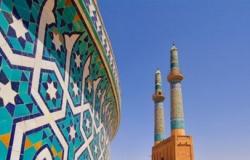Cooperation with Iran Fraught with Challenges

Cornelius Adebahr argues interest based cooperation between the West and Iran can and should go further, regardless of nuclear agreement.
For some, it’s the ultimate nightmare: An Iran alleged to control four Arab capitals would be emboldened by a deal over its nuclear program and literally enriched by the money freed under its terms. Rather than curbing proliferation, a deal with Iran would spark a nuclear race encouraging countries like Saudi-Arabia and Turkey to become “threshold nuclear powers” too.
For others, sealing the nuclear deal with Iran promises an idealistic scenario: A compromise found on this one, extremely difficult issue could help propel cooperation in other areas too, from Syria to Afghanistan and everything in between.
Reality, it seems, is not so black and white. A nuclear deal is unlikely to bring fundamental changes to a region torn by religious strife, sectarian rivalry, and weak governance. Both sides are no-where near tackling such issues together, as a closer look at how a nuclear deal has come into reach shows. Yet interest based cooperation between the West and Iran, and in particular between Washington and Tehran, can and should go further, whether a nuclear agreement is finally struck or not.
Three key, interrelated ingredients have brought the Iran nuclear negotiations this far: a willingness to overcome oneself and accommodate the other side’s major interest, paired with a readiness to disregard persisting fundamental differences and to compartmentalize and de-politicize the issue at hand.
On the nuclear file, the U.S. side overcame its fears and accepted a limited Iranian enrichment program despite earlier UN-backed calls for its full suspension. The Iranians compromised on the very talking to the “Great Satan” after ostracizing America for more than three decades.
Moreover, both sides are very much aware of each other’s domestic discourse but have decided to accept them as necessary, as their respective fact sheets issued after the April 2 agreed framework illustrate. For Iran, the latter is all about how the international community has accepted its demands to keep what they call a peaceful program and even helps modernizing it while also dropping its sanctions. In America, the narrative is that considerable concessions have been extracted from Iran, who has also agreed to substantial limitations to its program, both in terms of propor-tions and duration.
Finally, the not-so-secret success of the Iran nuclear talks lies in compartmentalization and depoliticization. By focusing on the nuclear issue – and excluding everything from human rights to missiles to terrorism from the negotiations – the aim is to find creative, but sustainable technical solutions that dodge the broader political questions. Iran insists on “nuclear activities” being conducted at the underground Fordow site? So it becomes a nuclear physics research center but without any enrichment conducted there. The international community insists on encompassing inspections of the whole nuclear process in Iran? Let’s agree on a dedicated procurement channel and inspections of the supply chain so as to get around the “anywhere, anytime” access that Iran is unwilling to grant.
None of those three ingredients of a deal is there when it comes to regional cooperation. The major accommodation by the Americans would be to accept that Iran has a (legitimate) role to play in the region, while Iran would have to overcome its refusal even to talk to Saudi Arabia, its regional rival based on sectarian as much as on geopolitical grounds. Both sides would have to be ready to ignore fundamentally different viewpoints on regional order, while trying hard to work on the details of one particular – compartmentalized – case. This could mean to use the relative distance both sides can take to settle the conflict in Yemen, while continuing to publicly disagree on how to do the same in, say, Syria. Or, as another example, to work out a regional arrangement for maritime safety in the Persian Gulf while allowing differences to persist over a broader regional security arrangement.
The fact that neither the United States nor Iran appears poised to take this step even after a nuclear deal does not mean that they or others should not try to bring it about regardless of whether an agreement is reached by June 30. The European Union as the oft-overlooked mediator of the nu-clear talks should start looking into a new role post-June 2015 that no one else wants to take on. Washington, already entering the pre-election season and happy to direct its top-level diplomatic resources to other burning crises, should welcome and support such an initiative which continues and extends the transatlantic cooperation over the Iran file.
Cornelius Adebahr is an associate in the Europe Program at the Carnegie Endowment for International Peace in Washington, DC. He was based in Iran for two years and taught political science at the University of Tehran.
Photo credit: ali reza_parsi / Chairs Hunter / CC BY


